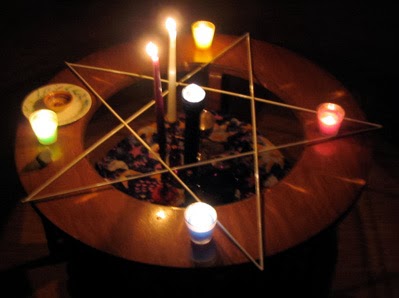 |
| Pictured: The glamorous writing life... |
If you're like me, your morning routine is a thing crafted over years of hard work and efficiency. Actually, it's more like "this is what I do" and I fall into a habit. The habit goes something like this: Wake up. Take care of bathroom necessities (no details here), pour myself a cup of coffee, let my dogs out, and sit on the back porch and drink coffee. I'll do a word puzzle while my dogs do their dog-stuff, then we go in. I fix the dogs their breakfast, then cook my breakfast, wash up, kiss my wife good bye, then go to work. I've been following that same routine every day for more time than I care to recount. It makes it efficient, makes it to where I don't have to think too hard about it, and it just gets done.
So why should your writing be any different?
On weekends, my routine is similar... I get up, drink coffee, let the dogs out, etc, but then I go sit at my computer for a couple of hours and work. That's my routine. It's why I look forward to weekends. So look at your schedule and see where you usually have time. That's your writing time. And don't just make it a "I'm not busy, so I guess I'll write" thing. Make this a "6pm to 8pm MTWThF is Writing Time, dammit!" Like I said, a routine helps put you in the right mindspace. If butt is in chair, fingers are on the keyboard and mind is in writer-land. Obviously, times don't matter. Just when you have a reasonable reliability that this time is your time. Trust me on this one.
Okay, so you've got your routine. So now what?
Goals.
 |
| Pictured: My goals... |
- Daily Word Count - When I'm working on a project, I set a word-count goal of 1000 words a day. That's roughly between four and five pages. Some writers (Stephen King) set a word-count goal much higher, but then, he's got all day to fill it. Since a lot of us (me) only have the time after work and weekends, 1000 words seems about right.
- Writing Time Goal - If the word-count thing doesn't work for you, maybe try setting a goal of total time spent with butt in chair before the keyboard.
- Milestone Goals - Give yourself a week to get a chapter done. Give yourself a specific amount of time to get plotting done, get characters fleshed out, etc.
- Deadlines - Get yourself a calendar and mark specific dates at which point you need to have specific things "turned in."
Now, goals only work if you take them seriously, so make sure you inform those who live with you about what has to be done, and by when. And work your hardest to hit those goals. But then, if you occasionally miss one, go easy on yourself. Also, remember that they are goals, which, by definition, are things that you have to work up to. If you can't hit 1000 words in a day, don't sweat it too hard. Just reset the goal to 500. Once you hit that one, move it up to 750. In no time, you'll be at that 1000 word goal and wonder why you ever thought it was hard.
That's it for this edition. Next time, we'll talk about something we all have to deal with: Rejection.
Until then, write on!
SAJ


